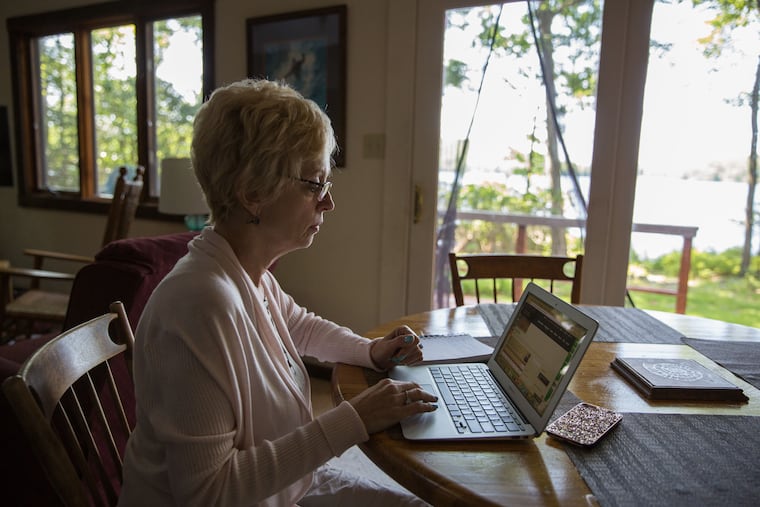Poconos property manager is getting a second chance to fight for her job
Pennsylvania laws governing the licensing and registration of real estate agents are “unreasonable” and “unduly oppressive” when applied to short-term vacation property managers, according to the state Supreme Court.

The Pennsylvania law governing the licensing and registration of real estate agents appears to be “unduly oppressive” and unnecessary when applied to someone who manages a few short-term vacation rental properties in the Poconos, the Pennsylvania Supreme Court said Tuesday.
In a 5-2 opinion, the justices said North Jersey resident Sally Ladd’s constitutional lawsuit against Pennsylvania’s Real Estate Commission can move forward.
Ladd, of Somerset County, shut down her online vacation-home property management business in 2017 after the Pennsylvania Department of State told her she was under investigation for practicing real estate without a license. Ladd managed properties for a handful of homeowners in the Poconos, listing the homes on websites such as Airbnb and her own website, getting rental agreements signed, collecting payments, and arranging for cleaning.
Ladd sued several Department of State agencies, including the Real Estate Commission, saying they and the requirements to become a real estate broker unconstitutionally kept her from earning a living in her chosen occupation as a short-term vacation property manager. She argued that her services were different from those of a traditional real estate broker, so she should not have to meet the requirements for one, including having a physical office, completing instructional hours and an apprenticeship, and passing exams.
The Supreme Court justices said Ladd has a valid case that the Real Estate Licensing and Registration Act’s requirements violate her rights under the Pennsylvania Constitution. The justices reversed a Commonwealth Court order dismissing Ladd’s lawsuit and sent the case back to the lower court for review.
Joshua Windham, Ladd’s attorney, who works for the Institute for Justice in Virginia, said Pennsylvania will have to provide “some evidence the extremely burdensome requirements actually achieve some legitimate public purpose.”
The requirement that Ladd have a brick-and-mortar office in Pennsylvania instead of operating out of her New Jersey home, Windham said, is “archaic” and particularly “out of step with how the modern economy works.” Ladd’s case could have implications for others running online businesses, he said.
“It’s a true victory for the right of Pennsylvanians to pursue their chosen calling free from arbitrary and what the court calls oppressive conditions,” he said. “I’m excited for others in Pennsylvania now to have the expanded opportunity this case provides to say, ‘Look, my rights have been violated, too.’”
The justices said Ladd’s business model seems more closely aligned with that of managers of rentals in hotels or multifamily housing, and the law’s requirements do not apply to them. The justices also agreed with Ladd’s argument that the act’s requirements would mean she would have to spend hundreds of hours learning material that is irrelevant to her business, and would have to give up business earnings for three years while she earned salesperson and broker licenses.
Commonwealth Court had agreed that the Real Estate Licensing and Registration Act would likely be “unduly burdensome” on Ladd because she managed so few properties for short periods of time. But the judges considered that burden irrelevant because they said the law is meant to protect the public during real estate transactions and has to be applied to everyone in the profession, regardless of the volume of transactions.
The Supreme Court justices, who heard Ladd’s case in Philadelphia in September, said other state laws regulate businesses such as Ladd’s.
Ladd began renting properties she owned on Arrowhead Lake in Monroe County for income after she was laid off from her digital marketing job. She created an online system for booking rentals, and some neighbors asked her to manage their properties.
She formed her company, Pocono Mountain Vacation Properties, in 2013 and, from her home, managed rentals lasting a few days for a few hundred dollars, according to court documents. She took a portion of the rent her clients collected.